#PCOD complications
Text
Demystifying PCOD and PCOS: Spotting the Variances
PCOD (Polycystic Ovary Disease) and PCOS (Polycystic Ovary Syndrome) are related conditions, but they have some differences:
Definition:
PCOD: Primarily refers to the presence of multiple cysts in the ovaries along with irregular menstrual cycles and elevated androgen levels. It may or may not present with symptoms like acne, hirsutism (excessive hair growth), and weight gain.
PCOS: Involves a…
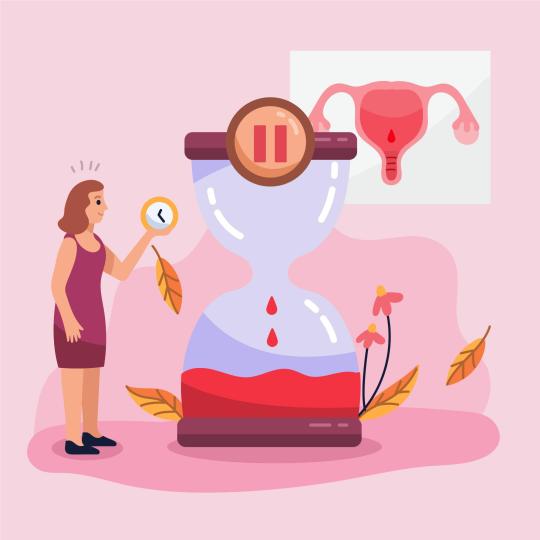
View On WordPress
#PCOD and infertility#PCOD and insulin resistance#PCOD and stress management#PCOD androgen levels#PCOD causes#PCOD complications#PCOD diet plan#PCOD dietary recommendations#PCOD exercise routine#PCOD holistic approaches#PCOD hormone therapy#PCOD lifestyle changes#PCOD natural fertility solutions#PCOD risk factors#PCOD supplements#PCOD symptoms#PCOD treatment options#PCOS androgen excess#PCOS diagnosis#PCOS emotional well-being#PCOS fertility awareness#PCOS fertility treatments#PCOS genetic factors#PCOS hair loss#PCOS hormonal imbalance#PCOS hormonal testing#PCOS hormonal therapy#PCOS lifestyle adjustments#PCOS management tips#PCOS menstrual cycle regulation
0 notes
Text
Solution on Complicated Marriages in Pune | Mumbai | India
Resolve complicated marital issues with expert counseling from Dr. Sanjay Erande , fostering communication and harmony in relationships.
#Solution on Complicated Marriages in Pune#Mumbai#India#Pregnancy Sex Problems#Treatment for Female Dyspareunia#Treatment on Unconsummated Marriages#Breast Enlargement Treatment#Treatment for PCOD Problem#Female Infertility Treatment.
0 notes
Text
How Does Homeopathy Helps in PCOD/PCOS ?
WHAT IS PCOD/PCOS?
PCOD (Polycystic ovarian disease) or PCOS (Polycystic ovarian syndrome) is a hormonal disorder that affects approximately10- 15% of all women, which are very commonly found in day-to-day practice and increasing nowadays. It interferes with their fertility during the reproductive years. There are multiple (‘poly’) cysts (small sacs filled with fluid) in the ovaries, on either side or both sides.
WHAT CAUSES PCOD?
PCOD is caused by hormonal imbalance i.e. altered hormones.
1) Raised level of Testosterone:
A higher level of male hormone (Androgen Hormone). Normally androgen hormone is present in small amounts, but if the level increases then it leads to restricting the ovaries from releasing an egg (ovulation) during each menstrual cycle.
2) A higher level of LH Hormone: –
A higher level of Luteinizing Hormone disturbs the ovulation during the menstrual cycle.
3) Raised level of Prolactin:-
Prolactin levels of between 30 ng/mL and 200 ng/mL are considered moderately high. This level of prolactin in the blood can have many causes. Conditions related to raised levels of prolactin include pituitary disorders.
4) A higher level of Insulin: –
The excess level of insulin affects the ovaries by increasing androgen hormone thus affecting ovulation.
SYMPTOMS :
SymptomsOther signs includeIrregular menses or No mensesHair fallExcess hair on face, Chest, Stomach.DepressionHair ThinningAnxietyWeight GainDifficulty in getting pregnantAcneMood swings
HOMEOPATHY TREATMENT FOR PCOD/PCOS :
Homeopathy works on regulating hormonal imbalance, regularizing ovulation as well as maintaining a normal menstrual cycle. Homeopathy helps to treat other signs and symptoms also.
Homeopathy treatment varies from patient to patient. Homeopathic treatment is based on the extent of the problem, physiological and mental health of the patient. Homeopathic treatment is a holistic treatment. Dr. Vaseem Choudhary studies both the mental and physical condition of patients before giving any medicine. In PCOS there is careful observation of symptoms and regular follow up.
WHY HOMEO CARE CLINIC ??
Dr. Vaseem Choudhary has been treating PCOS with homeopathy treatment for many years. Dr. Vaseem Choudhary is a well-known homeopathy doctor in Pune. His treatment is safe and doesn’t have any adverse effects on the patient. Homeopathy treatment for PCOS varies from patient to patient. Patients with PCOD may experience some complications like Difficulty in getting pregnant (Infertility) and another bleeding from the uterus can be successfully treated with Homeopathy.
A complete approach at Homeo Care Clinic is harmless. So, it’s very easy to completely get rid of the side effects of conventional medication, as homeopathy treats the root cause and thereby regulate hormonal imbalance and treats PCOS.
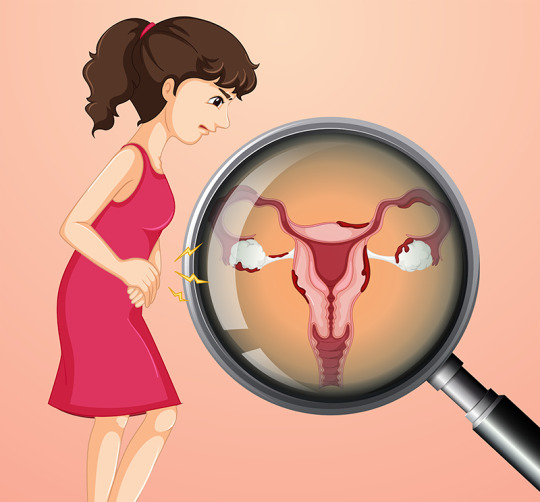
#homeopathicdoctor#pune#pcodtreatment#homeopathyworks#homeocareclinic in hadapsar#best tablet for pcod
2 notes
·
View notes
Text
Ayurveda hospitals in Kochi for PCOD treatment
Polycystic Ovarian Disease (PCOD) is a common endocrine disorder among women of reproductive age, characterized by a variety of symptoms that can affect a woman's hormonal levels, menstrual cycle, and overall health. In Kochi, the Rasayana Ayurvedic Centre stands out as one of the best Ayurveda hospitals in kochi specializing in the treatment of PCOD, leveraging ancient wisdom combined with personalized care to manage and treat this complex condition.
Personalized Ayurvedic Treatments At Rasayana Ayurvedic Centre, the treatment for PCOD begins with a detailed diagnosis to understand the unique Prakriti (constitutional type) and Vikriti (current state of imbalance) of the patient. Ayurveda treats PCOD not just as a disease of the reproductive system but as a disorder that affects the body as a whole. Treatments are highly personalized and may include a combination of Panchakarma detoxification processes, herbal medications, diet modifications, and lifestyle interventions.
Panchakarma Detoxification Panchakarma, the cornerstone of Ayurvedic therapy, is particularly effective in treating PCOD. This intensive detoxification treatment helps cleanse the body of accumulated toxins that can lead to hormonal imbalances. Treatments such as Virechana (purgation) and Basti (medicated enema) are often recommended to restore the body’s natural balance and enhance the reproductive system’s functionality.
Herbal Medications Rasayana Ayurvedic Centre utilizes a range of traditional herbal medicines known for their efficacy in treating hormonal imbalances associated with PCOD. Herbs like Shatavari, Guduchi, and Ashoka are commonly prescribed. These herbs not only help in regulating menstrual cycles but also address associated symptoms like acne, hair loss, and weight gain.
Diet and Lifestyle Modifications Diet plays a crucial role in managing PCOD, and at Rasayana, patients receive customized dietary plans based on their specific doshic imbalances and nutritional needs. Ayurvedic dietary recommendations often include whole grains, fresh vegetables, and seeds that are low in glycemic index and high in fiber, which can help in managing insulin levels and reducing PCOD symptoms. Lifestyle advice may also include yoga and meditation, which help reduce stress and balance hormone levels, both of which are crucial for PCOD management.
Stress Management Techniques Stress is a significant factor that exacerbates PCOD symptoms. Rasayana Ayurvedic Centre offers various stress management programs including yoga, meditation, and Pranayama (breathing exercises), which are integral parts of the treatment process. These practices help in reducing stress, improving mental clarity, and restoring hormonal balance.
Holistic Approach The holistic approach at Rasayana doesn’t just focus on treating PCOD symptoms but also aims at improving the overall health and well-being of the patient. This is achieved through a combination of therapies that enhance physical, mental, and emotional health, thereby improving the quality of life and preventing future health complications.
Success Stories and Testimonials Rasayana Ayurvedic Centre has numerous success stories and positive testimonials from women who have seen significant improvements in their PCOD symptoms after undergoing treatment at the center. These testimonials underscore the effectiveness of the Ayurvedic approach and the expertise of the practitioners at Rasayana.
State-of-the-Art Facilities Located in the heart of Kochi, Rasayana Ayurvedic Centre offers state-of-the-art facilities that provide a comforting and nurturing environment conducive to healing. The serene ambiance, coupled with the warm hospitality of the staff, makes the treatment journey smooth and pleasant for patients.
Education and Empowerment Education is a critical component of the treatment protocol at Rasayana. Patients are educated about the nature of PCOD, the importance of diet and lifestyle, and how Ayurveda can help manage their condition. This empowerment helps patients take active roles in their health and wellness journeys.
Conclusion Rasayana Ayurvedic Centre distinguishes itself as one of the best Ayurveda hospitals in Kochi for the treatment of PCOD. With its expert practitioners, personalized treatment plans, and holistic approach, it offers a beacon of hope for many women struggling with this challenging condition. By choosing Rasayana, patients can expect not only to alleviate their symptoms but also to embark on a transformative journey towards better health and well-being.
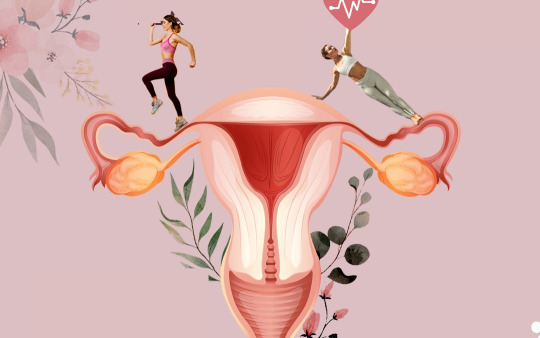
0 notes
Text
diet and lifestyle affect PCOS and PCOD
Diet and lifestyle play crucial roles in the management of both PCOS (Polycystic Ovary Syndrome) and PCOD (Polycystic Ovary Disorder). Making healthy choices can help improve symptoms, regulate menstrual cycles, manage weight, and reduce the risk of complications associated with these conditions. Here's how diet and lifestyle can affect PCOS and PCOD:
1. Diet:
Balanced Nutrition: Consuming a balanced diet that includes a variety of fruits, vegetables, whole grains, lean proteins, and healthy fats can help stabilize blood sugar levels, improve insulin sensitivity, and support overall health.
Complex Carbohydrates: Choosing complex carbohydrates with a low glycemic index (GI), such as whole grains, legumes, and non-starchy vegetables, can help prevent spikes in blood sugar levels and insulin production.
Limiting Sugary Foods and Refined Carbohydrates: Foods high in added sugars and refined carbohydrates, such as sugary snacks, sweets, white bread, and sugary beverages, can cause rapid increases in blood sugar levels and exacerbate insulin resistance.
Healthy Fats: Including sources of healthy fats, such as avocados, nuts, seeds, olive oil, and fatty fish, in moderation can help support hormone production and reduce inflammation.
Protein: Consuming adequate protein from sources such as lean meats, poultry, fish, tofu, tempeh, legumes, and low-fat dairy products can help promote satiety, stabilize blood sugar levels, and support muscle health.
2. Lifestyle:
Regular Exercise: Engaging in regular physical activity, such as aerobic exercise, strength training, or yoga, can help improve insulin sensitivity, promote weight loss or maintenance, and reduce symptoms of PCOS and PCOD.
Weight Management: Achieving and maintaining a healthy weight can help regulate menstrual cycles, improve fertility, and reduce the risk of complications associated with PCOS and PCOD. Even modest weight loss can have significant benefits.
Stress Management: Chronic stress can worsen symptoms of PCOS and PCOD by increasing levels of cortisol, a stress hormone, which can affect hormone balance and insulin sensitivity. Incorporating stress-reducing activities such as mindfulness, meditation, deep breathing exercises, or hobbies can help manage stress levels.
Adequate Sleep: Getting enough quality sleep is essential for hormone regulation, metabolism, and overall health. Aim for 7-9 hours of sleep per night and establish a regular sleep schedule to support hormone balance.
3. Hydration:
Water Intake: Staying hydrated by drinking an adequate amount of water throughout the day is important for overall health and can help support metabolic function, digestion, and hormone balance.
4. Supplements:
Omega-3 Fatty Acids: Supplementing with omega-3 fatty acids, found in fish oil or algae oil, may help reduce inflammation and improve insulin sensitivity.
Vitamin D: Some studies suggest that vitamin D supplementation may help improve insulin sensitivity and menstrual regularity in women with PCOS who are deficient in vitamin D.
5. Limiting Alcohol and Caffeine:
Alcohol: Limiting alcohol intake can help manage weight, support liver health, and reduce inflammation. Alcohol can also interfere with hormone balance and metabolism.
Caffeine: While moderate caffeine consumption is generally considered safe, excessive caffeine intake can disrupt sleep patterns and increase cortisol levels, potentially exacerbating symptoms of PCOS and PCOD.
Making gradual, sustainable changes to diet and lifestyle habits is key. Consulting with a healthcare provider or a registered dietitian who specializes in PCOS and PCOD can provide personalized guidance and support to help optimize diet and lifestyle choices for managing these conditions.

0 notes
Text
Unveiling the Basics of PCOD/PCOS: Symptoms, Causes, and Risk Factors by Dr. Jyotsna Gandhi Gupta
Polycystic Ovary Syndrome (PCOS) or Polycystic Ovary Disorder (PCOD) is a common hormonal disorder affecting millions of women worldwide. Often misunderstood and misdiagnosed, it's imperative to comprehend its fundamentals to seek timely intervention. Here, Dr. Jyotsna Gandhi Gupta from Sadbhavana Hospital in Raipur sheds light on PCOD/PCOS, its symptoms, causes, and risk factors, along with emphasizing the significance of seeking treatment from the best gynecologist in Raipur.
Understanding PCOD/PCOS:
PCOD/PCOS is characterized by hormonal imbalances in women of reproductive age, leading to irregular periods, ovarian cysts, and difficulties in conceiving. Dr. Jyotsna elucidates that while PCOD and PCOS are often used interchangeably, they slightly differ in terminologies yet exhibit similar symptoms and complications.
Symptoms:
The symptoms of PCOD/PCOS manifest differently in each woman, making diagnosis challenging. Common indications include irregular menstrual cycles, excessive hair growth (hirsutism), acne, weight gain, and fertility issues. Dr. Jyotsna emphasizes the importance of consulting a gynecologist upon experiencing these symptoms for accurate diagnosis and personalized treatment.
Causes and Risk Factors:
The exact cause of PCOD/PCOS remains elusive, but genetic predisposition, insulin resistance, and hormonal imbalance are believed to play pivotal roles. Dr. Jyotsna elucidates that factors such as sedentary lifestyle, poor dietary habits, and stress can exacerbate the condition. Understanding these risk factors empowers women to adopt preventive measures and seek timely medical intervention.
PCOD Treatment in Raipur:
In Raipur, seeking effective treatment for PCOD/PCOS is paramount for managing its symptoms and preventing long-term complications. Dr. Jyotsna highlights Sadbhavana Hospital's commitment to providing comprehensive care for women's health issues, including specialized treatment for PCOD/PCOS. Through a multidisciplinary approach, the hospital offers tailored treatment plans addressing the unique needs of each patient.
PCOS Treatment in Raipur:
Managing PCOS requires a multifaceted approach encompassing lifestyle modifications, medication, and in some cases, surgical interventions. Dr. Jyotsna underscores the importance of personalized care delivered by experienced gynecologists in Raipur, ensuring optimal outcomes for patients with PCOS. At Sadbhavana Hospital, patients can expect compassionate care coupled with advanced medical expertise in managing PCOS effectively.
Best Gynecologist in Raipur:
Choosing the right gynecologist is pivotal in navigating the complexities of PCOD/PCOS treatment. Dr. Jyotsna Gandhi Gupta, renowned for her expertise and compassionate approach, emerges as the go-to gynecologist in Raipur for women seeking quality care for PCOD/PCOS and other gynecological concerns. Her patient-centric approach, coupled with Sadbhavana Hospital's state-of-the-art infrastructure, ensures holistic care and positive treatment outcomes.
In conclusion, understanding the basics of PCOD/PCOS is crucial for timely diagnosis and effective management. Dr. Jyotsna Gandhi Gupta's insights underscore the importance of seeking treatment from the best gynecologist in Raipur, especially at Sadbhavana Hospital, where personalized care and advanced treatment modalities converge to empower women in their journey towards better health and well-being. If you or someone you know is grappling with PCOD/PCOS, don't hesitate to reach out for expert guidance and support.
#PCOD#PCOS#gynecology#women's health#Raipur#Sadbhavana Hospital#Dr. Jyotsna Gandhi Gupta#hormonal imbalance#menstrual irregularities#fertility issues#best gynecologist#treatment#healthcare
0 notes
Text
Your Trusted Ally for Obstetrics and gynecology in Adarsh Nagar, Delhi

In today's fast-paced environment, women deal with a variety of gynecological concerns. From irregular periods to problems with reproductive health, the number of issues faced by women is countless. Here at GTK Hospital, we can address and meet these challenges effectively. With our advanced gynecology and obstetrics equipment, we are able to meet the needs of women today!
Gynecological issues are a matter of concern and, if avoided can even lead to loss of life. So what makes women afraid nowadays? PCOD and PCOS are two of the most feared terms in a woman’s life. Even in today’s time, maternal mortality remains at an alarming rate, with thousands of women losing their lives during childbirth each year due to various complications. Access to quality obstetric and gynecological care is crucial to ease these risks and ensure women's well-being.
Our experienced team of obstetricians and gynecologists understands the complexities of modern women's health issues and is dedicated to offering cutting-edge diagnostics and innovative treatments to address them effectively.
When it comes to your obstetric and gynecological care, choosing the right healthcare provider is very important. At GTK Hospital, we prioritize women's health and well-being, providing top-notch care in a supportive and nurturing environment.
Don't let gynecological issues affect your quality of life. Trust GTK Hospital to provide the best care and support for gynaecological treatment in Adarsh Nagar, Delhi.
0 notes
Text
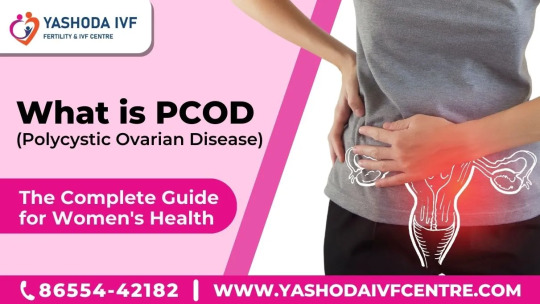
Introduction
Polycystic Ovary Disease (PCOD), is a common hormonal disorder among women of adult age. It affects the ovaries and causes irregular menstruation cycles, excessive androgen levels, and polycystic ovaries. The overall health and fertility of women can all be severely affected by PCOD. PCOD can be treated with Best PCOD treatment centre in Navi Mumbai.
Causes of PCOD
The combination of genetic and environmental factors leads to PCOD. Hormonal Imbalance, Insulin resistance, Genetic sensitivity, and lifestyle choices such as nutrition and exercise can all contribute to the development of PCOD. Women will face more complication during fertility if PCOD left untreated.
Symptoms of PCOD
The symptoms of PCOD vary from woman to woman and IVF Fertility treatments stimulate the ovaries and manipulate hormones, they may make PCOD symptoms worse.
Below the common symptoms of PCOD,
Irregular periods or no periods.
Hirsutism – Excessive hair growth on the face.
Weight gain or difficulty losing weight.
Acne and oily skin or dandruff.
Alopecia – Thinning hair or hair loss on the scalp.
Darkening of the skin, especially in skin folds.
Insulin resistance symptoms of increased hunger and fatigue.
Infertility – Difficulty getting pregnant.
Mood swings, anxiety, or depression are additional symptoms.
Diagnosis of PCOD
Diagnosing PCOD typically involves a complete medical history and physical examination, along with blood tests to measure hormone levels and ultrasound imaging to visualize the ovaries.
Complications of PCOD
Complications of PCOD includes infertility, type 2 diabetes, cardiovascular diseases, and an increased risk of endometrial cancer due to irregular menstrual cycles.
PCOD Treatment Options at Yashoda IVF
Treatment for PCOD focuses on managing symptoms and addressing underlying hormonal imbalances. Yashoda IVF Fertility and IVF Centre is a leading fertility treatment centre in Navi Mumbai offering comprehensive PCOD treatment options. Their expert team provides personalized care, including medications to regulate menstrual cycles, reduce androgen levels, lifestyle changes, and advanced procedures, ensuring effective management of PCOD for improved fertility outcomes.
Importance of Regular Monitoring and Follow-Up
Regular monitoring of hormone levels and follow-up appointments with healthcare providers are essential for managing PCOD effectively and adjusting treatment plans as needed. In order to receive regular reviews and to get treatment for PCOD, women can schedule appointments with their best infertility specialists in Navi Mumbai.
Support and Resources for Women with PCOD
To cope with the emotional and psychological aspects of PCOD, women can benefit from joining support groups, accessing educational resources, getting help from pregnancy applications and seeking counseling services to manage the condition’s psychological and emotional aspects.
Conclusion
A common hormonal disorder called PCOD which we can have serious effects on a women’s health and fertility. However, with the right treatment and support, women with PCOD can lead fulfilling lives and achieve their reproductive goals. By understanding the PCOD causes, symptoms, and treatment options, women can take control of their health and well-being.
#pcod and pcos treatment#what is pcod#pcod treatment#pcodawareness#pcod#pcod problem treatment#pcod symptoms#pcod kya hota hai
0 notes
Text
Understanding the IVF Cost in Mumbai: A Complete Breakdown
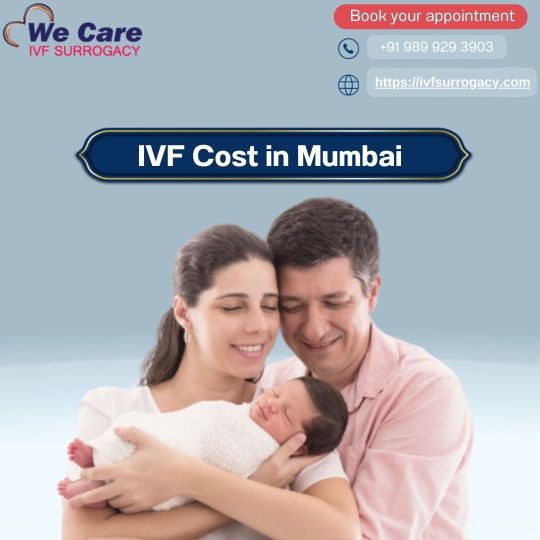
IVF (in vitro fertilization) is a proven surgical procedure in which the eggs of the female partner are combined with the sperm of the male partner in a laboratory. After combining the sperm and the eggs, embryos will be formed. The best embryos will then be transferred into the female partner`s uterus. The IVF cost in Mumbai is much more affordable than in many other cities in India. Many couples living in Western countries come to Mumbai for various ART (assisted reproductive technology) treatments, including IVF. IVF treatment has better pregnancy results. The IVF price in Mumbai is much more affordable as compared to other countries. Along with low cost IVF in Mumbai, the top fertility clinics are offering modern equipment and top-grade facilities to their patients. Infertility can be a stressful journey for couples, as they cannot conceive a biological baby. Couples with severe infertility issues can be dealing with severe mental health problems. Many couples decide to separate by getting divorced and ending their happy married lives. In most cases, couples compromise with their infertility condition by adopting a child. Couples cannot conceive through mating, and thus they will need IVF assistance. Couples can easily find a low cost IVF centre in Mumbai offering better pregnancy outcomes. Both male and female infertility issues can be treated with IVF.
Finding the exact IVF cost in Mumbai:
The most common issue that couples are facing is infertility. There are so many infertility issues, but still, there are few infertility treatments. Infertility prevents couples from becoming parents and starting a happy married life. So many clinics offer several other ART methods, including ICSI (intracytoplasmic sperm injection), IMSI (intracytoplasmic morphologically selected sperm injection), PESA (percutaneous epidydimal sperm aspiration), TESA (testicular sperm aspiration), etc. These advanced ART methods will increase the IVF cost in Mumbai. These clinics also provide skilled experts and professional medical workers. Couples should always explore the reputation of the clinic, the previous patient`s success rate, and the location of the clinic. These important factors can influence the IVF price in Mumbai. However, exploring different clinics helps them find the cheapest IVF centre in Mumbai. Couples with low sperm counts or poor eggs will be recommended for donor assistance. Couples who want to freeze their eggs can find the best clinics. The cost of freezing eggs in Mumbai is between INR 30,000 and INR 35,000. The IVF treatment cost Mumbai also relies on previous failed pregnancies, failed IVF or ART cycles, and miscarriages. The best clinics, like We Care IVF Surrogacy, offer low cost IVF treatment in Mumbai between INR 2,50,000 and INR 3,00,000.
Factors affecting the IVF cost in Mumbai:
A fertility clinic will recommend IVF treatment to couples who have unexplained infertility issues. For a female partner, several problems result in infertility. Problems such as PCOD (polycystic ovarian disease), uterine fibroids, ovulation complications, early menopause, and endometriosis can find be found at a low cost IVF centre in Mumbai offering the best treatment. Additionally, female partners with missing, blocked, ruptured, or damaged fallopian tubes can find a fertility clinic offering affordable IVF cost in Mumbai. Male partners with poor and low sperm, sperm morphology, and sperm motility can also find low cost IVF in Mumbai for the best IVF treatment. The cause of infertility can also raise the IVF treatment price in Mumbai. The total IVF price in Mumbai can also fluctuate if the couple has any genetic problems.
A Series of Steps Involved in IVF Treatment:
Couples who do not want to pass on their genetic problems to their newborn child will need to undergo ultrasounds and blood tests. These tests help to find any genetic problems in the couple. Additionally, these tests also help to determine the fertility and health conditions of the couples. The best hospitals in Mumbai will also offer counseling sessions to relax the mental health of the couples. The counselor will guide the couples during their IVF cycle by providing all the necessary information about the IVF procedure. Counseling and tests may increase the IVF cost in Mumbai. The best doctors who are offering low cost IVF in Mumbai will start the treatment by injecting reproductive injections into the female partner`s uterus. These injections will stimulate the ovaries to produce more mature, high-quality eggs. Fertility doctors who are offering low cost IVF treatment in Mumbai will retrieve these mature eggs by inserting a catheter inside the uterus of the female partner. The male partner needs to give his semen sample to the doctor at the same time. The doctor offering an affordable IVF treatment price in Mumbai will use the SSR (surgical sperm retrieval) technique if the male partner is not able to provide a semen sample through ejaculation. The expert will then combine the couple's gametes in a petri dish outside the human body. The ICSI method will be used, in which a single sperm will be injected inside each egg. This increases the success rate of the IVF. The doctor will monitor the mixing for a few days. This is called fertilization, in which embryos will be formed. The best embryos will then be selected for implantation. A catheter will be used to implant the best embryo inside the female partner`s uterus. When these embryos stick to the uterus lining, pregnancy symptoms will be observable. The best doctor at the low cost IVF centre in Mumbai will confirm the pregnancy result through ultrasound and blood tests. The female partner will need a proper diet, advanced care, routine health check-ups, clothes, and every other necessity during the pregnancy. She will deliver a healthy child after nine months through a cesarean or normal delivery. The IVF price in Mumbai will increase if the cesarean delivery method is used.
Conclusion-
One of the most common issues nowadays is infertility. Infertility can destroy the lives of couples and affect their happiness throughout their lives. Couples facing severe or unexplained infertility issues can get low cost IVF treatment in Mumbai. The best clinics, like We Care IVF Surrogacy, offer their patients advanced facilities. These clinics offer ART methods such as IVF, ICSI, TESA, PESA, IMSI, etc. The best clinics offering low cost IVF in Mumbai provide counseling, several examinations such as ultrasound and blood tests, and advanced care. The IVF cost in Mumbai depends on factors like the clinic`s reputation, the clinic`s location, failed pregnancies, miscarriages, causes of infertility issues, etc. The cheapest IVF centre in Mumbai will offer the best treatment for between INR 2,50,000 and INR 3,00,000.
0 notes
Text
PCOD package in GSV Diagnosticlab
PCOD: Symptoms, Management, and Treatment Options
Polycystic Ovary Syndrome (PCOS), also known as Polycystic Ovary Disorder (PCOD), is a common endocrine system disorder among women of reproductive age. It affects approximately 5–10% of this demographic worldwide. PCOD is characterized by a variety of symptoms, including irregular menstrual cycles, excess androgen levels, and polycystic ovaries. While the exact cause of PCOD remains unknown, factors such as genetics, insulin resistance, and hormonal imbalances are believed to play significant roles.
Symptoms of PCOD
PCOD presents a wide range of symptoms, which may vary in severity among individuals. Some common symptoms include:
Irregular Menstrual Cycles: Women with PCOD often experience irregular periods, with cycles longer than 35 days or fewer than eight menstrual cycles in a year.
Hirsutism: Excess hair growth, particularly on the face, chest, back, and buttocks, is a common symptom of PCOD. This is due to elevated levels of androgens, such as testosterone.
Acne: Hormonal imbalances associated with PCOD can lead to acne outbreaks, particularly along the jawline, chin, and lower cheeks.
Polycystic Ovaries: Ultrasound imaging may reveal the presence of multiple small cysts on the ovaries, though not all women with PCOD exhibit this feature.
Weight Gain: Many women with PCOD struggle with weight management, as the condition often leads to insulin resistance, making it easier to gain weight and harder to lose it.
Hair Loss: Thinning hair or male-pattern baldness can occur in women with PCOD due to elevated androgen levels.
Management and Treatment Options
While PCOD cannot be cured, its symptoms can be managed effectively through various approaches. Treatment typically focuses on alleviating specific symptoms and addressing underlying hormonal imbalances. Here are some common management and treatment options:
Lifestyle Changes: Adopting a healthy lifestyle can significantly improve PCOD symptoms. This includes regular exercise, a balanced diet rich in fruits, vegetables, and whole grains, and stress reduction techniques such as yoga or meditation.
Weight Management: Losing even a small amount of weight can help regulate menstrual cycles and improve insulin sensitivity in women with PCOD. A combination of dietary changes and regular exercise is key to successful weight management.
Medication: Hormonal birth control pills are often prescribed to regulate menstrual cycles and reduce androgen levels in women with PCOD. Other medications, such as anti-androgens or insulin-sensitizing drugs like metformin, may also be recommended depending on individual symptoms and health status.
Fertility Treatments: For women trying to conceive, fertility medications such as clomiphene citrate or assisted reproductive technologies like in vitro fertilization (IVF) may be necessary to induce ovulation and improve chances of pregnancy.
Skin and Hair Care: Dermatological treatments, including topical creams, oral medications, or procedures such as laser hair removal, can help manage acne and hirsutism associated with PCOD.
Regular Monitoring: Women with PCOD should undergo regular check-ups with their healthcare providers to monitor symptoms, assess treatment effectiveness, and screen for potential complications such as diabetes, high blood pressure, or endometrial cancer.
Conclusion
PCOD is a complex condition that requires a multidisciplinary approach to management and treatment. While there is no one-size-fits-all solution, lifestyle modifications, medications, and supportive therapies can help women with PCOD lead healthier lives and manage their symptoms effectively. Early diagnosis and intervention are crucial for minimizing the long-term health risks associated with PCOD and improving overall quality of life. If you suspect you may have PCOD, it’s essential to consult with a healthcare professional for proper evaluation and personalized treatment recommendations.
Call : +91 8939152248
#diagnostic #center in #chennai #porur #diagnostic #centre

0 notes
Text
PCOD Profile Tests: Understanding Hormonal Imbalances and Health Implications
Polycystic Ovary Syndrome (PCOS) is a complex hormonal disorder affecting millions of women worldwide. One of the key diagnostic tools for identifying PCOS is the PCOD Profile Test. This test plays a crucial role in assessing various hormonal parameters and aiding in the accurate diagnosis and management of PCOS. In this article, we delve into the details of the PCOD Profile Test, its significance, and what to expect from the results.
What is PCOD Profile Test?
The PCOD Profile Test is a diagnostic test specifically designed to evaluate hormonal imbalances associated with Polycystic Ovary Syndrome (PCOS) or Polycystic Ovarian Disorder (PCOD). PCOS is characterized by irregular menstrual cycles, elevated androgen levels, and polycystic ovaries. The PCOD Profile Test helps in identifying these hormonal irregularities and provides valuable insights for diagnosis and treatment planning.
Components of PCOD Profile Test:
1. Luteinizing Hormone (LH) and Follicle Stimulating Hormone (FSH) Levels:
Luteinizing Hormone (LH) and FSH are hormones produced by the pituitary gland that play a crucial role in regulating the menstrual cycle and ovarian function. In PCOS, there is often an imbalance between LH and FSH levels, which can lead to irregular ovulation and fertility issues.
2. Testosterone Levels:
Testosterone is a male sex hormone, but it is also produced in smaller amounts in women. Elevated levels of testosterone are commonly associated with PCOS and can lead to symptoms such as hirsutism (excess hair growth), acne, and male-pattern baldness.
3. Estrogen Levels:
Estrogen is a primary female sex hormone responsible for the development and regulation of the female reproductive system. Imbalances in estrogen levels can impact menstrual cycles and fertility.
4. Progesterone Levels:
Progesterone is another essential hormone involved in regulating the menstrual cycle and maintaining pregnancy. Low progesterone levels can indicate issues with ovulation and may contribute to infertility.
5. Prolactin Levels:
Prolactin is a hormone primarily associated with lactation. Elevated prolactin levels can disrupt the normal menstrual cycle and contribute to infertility.
6. Insulin Resistance:
Insulin is a hormone that regulates blood sugar levels. Insulin resistance, a condition where the body's cells become resistant to the effects of insulin, is commonly associated with PCOS and can lead to weight gain and difficulty in managing blood sugar levels.
Significance of PCOD Profile Test:
The PCOD Profile Test provides valuable information for the accurate diagnosis of PCOS and helps in understanding the underlying hormonal imbalances contributing to the condition. Early detection and diagnosis of PCOS are crucial for timely intervention and management to prevent long-term complications such as infertility, diabetes, and heart disease.
Interpreting PCOD Profile Test Results:
Interpreting PCOD Profile Test results requires careful consideration of various hormonal parameters and their respective reference ranges. Abnormalities in hormone levels, such as elevated testosterone or insulin resistance, may indicate the presence of PCOS. However, it is essential to consult a healthcare professional for proper diagnosis and interpretation of test results.
Conclusion:
The PCOD Profile Test is a valuable diagnostic tool for evaluating hormonal imbalances associated with PCOS. By assessing key hormonal parameters such as LH, FSH, testosterone, and insulin resistance, this test aids in the accurate diagnosis and management of PCOS. Early detection and intervention are crucial for improving outcomes and reducing the risk of long-term complications associated with PCOS. If you suspect you may have PCOS or are experiencing symptoms such as irregular menstrual cycles, hirsutism, or difficulty conceiving, consult your healthcare provider for proper evaluation and diagnosis.
0 notes
Text
Meet Dr. Arohi Tasgoankar: Your Trusted Gynecologist in Waghbil at Complete Women’s Care!

Unveiling Excellence in Gynecology
Dr. Arohi Tasgoankar is an MS Obstetrician and Gynaecologist from Grant Medical College and JJ Group of Hospitals, Mumbai. She has received a graduate degree from the National Board Of Examinations (DNB). Furthermore, she has done a Fellowship in Gynaec Endoscopy under the able guidance of Dr. Haresh Vaghasia, MD, DPE(Austria), DHS (Italy). Dr. Arohi Tasgaonkar is the Best Gynecologist in Waghbil, Thane.
She believes in treating her patients ethically and with empathy. She has devoted her practice to helping women from adolescence to menopause live healthy, fulfilling, and wholesome lives. She understands that Women’s healthcare needs are growing increasingly and is committed to supporting her patients with various medical and technological advances.
Services We Provide:-
Normal delivery
Delivery is a completely natural delivery of a baby by the mother without any medical intervention.
High Risk Pregnancy
Pregnancy involves increased health risks for the pregnant person, fetus, or both.
C section Delivery
C-section is used to deliver a baby through surgical incisions made in the abdomen and uterus.
Hysterectomy
A hysterectomy is a surgical procedure to remove the womb (uterus).
Fibroid Removal
The surgeon will cut your lower abdomen to remove the fibroids.
PCOD
PCOS is a widespread hormone problem for women of childbearing age.
Breast cancer screening
Mammography is the best tool doctors have to screen healthy people for breast cancer.
Fertility enhancing surgery
Are surgeries that help to enhance or restore fertility in women with infertility complications
Infertility Evaluation
An infertility evaluation may be offered to any patient who by definition has infertility or is at high risk of infertility.
Seek expert care for your feminine health!
Visit Complete Women’s Care in Waghbil, 004, Gohit, Gate No.2, Kanchanpushpa Complex, Waghbil, Near Suraj Water Park, Ghodbunder Road, Thane 400615.
where Dr. Arohi Tasgoankar, a renowned Gynecologist in Wagbil, Thane, provides personalized solutions. Contact us on +91 98330 74977 to schedule your appointment today!
#gynecologist in ghodbunder road thane#gynecologist in manpada#gynecologist in thane#complete women’s care#gynaecologist in hiranandani estate thane#gynecologist in kasarvadavali#gynecologist in waghbil#gynaecologist in bethany hospital thane.#dr. arohi tasgaonkar#gynecologist in ghodbunder road thane.
0 notes
Text
How You Can Reduce the Symptoms of PCOD?
PCOD (Polycystic Ovary Disorder) is an endocrine condition during which women face irregular or absent periods. When the women’s ovaries generate premature eggs, these eggs further develop themselves into cysts. It also increases the male hormone (androgen) which results in follicular cysts. Let’s explore PCOD in more detail.
What are the Symptoms of PCOD?
Common symptoms of PCOD are Irregular Menstrual Periods, Heavy Bleeding in Menstrual Cycles, Acne, Obesity, Pigmentation, Excessive growth of hair on the body, Hair Loss, and Depression. If you are facing these symptoms but want to get pregnant then you should consult with the Best infertility doctor in Lucknow to understand infertility treatment depending on your condition.
What are the Causes behind PCOD?
There are different causes behind PCOD and it could be an unhealthy diet or eating a lot of junk food because junk food carries preservatives, food colors, and other microorganisms which increases the chances of hormonal imbalance. Improper lifestyle, overdose of medications, pollution, and several supplements may impact your hormonal balance.
Excessive Insulin production in the body stimulates androgen production that leads to PCOD. Low-grade inflammation can also lead to PCOD in your body. Other than that excessive androgen levels may lead to PCOD and it can cause excessive body hair, facial breakouts, facial hair, and more.
How you can Diagnose PCOD?
This can be diagnosed with a medical history of your menstrual health. Excess hair growth, acne, weight gain, and other relevant medical conditions are also analyzed. A physical examination may also conducted to assess signs of PCOD. Whereas blood tests are performed to measure hormone levels. A pelvic ultrasound is performed to visualize the ovaries. PCOD is diagnosed with ultrasound or determining the high androgen levels.
Can PCOD Cause Another Chronic Disease?
PCOD can cause Diabetes and it can also lead to gestational diabetes. It also puts a baby and a woman's life at risk. On the other hand, diabetes and blood pressure are also related to each other. Liver disease, sleep apnea, heart disease, and infertility.
What lifestyle changes can reduce the symptoms of PCOD?
If you are facing higher than normal insulin levels due to PCOD then you should manage your blood sugar levels. Too high levels of insulin can cause your ovaries to produce more androgens like testosterone. A diet high in refined carbohydrates can cause insulin resistance and can be responsible for higher weight. A high-fiber diet helps in reducing the effect of sugar on your body. Make your exercise routine to manage your weight and avoid sugary snacks or drinks, and inflammatory foods.
What are the Treatments for PCOD?
Women with PCOD face adverse symptoms and deal with complications during pregnancy. For the treatment of this condition, you can take help of birth control pills after consulting your female infertility specialist. You can also undergo fertility treatments like IVF in the Best IVF hospital in Lucknow.
Conclusion
When the women’s ovaries generate premature eggs, these eggs further develop themselves into cysts and cause Acne, irregular periods, heavy periods, Obesity, Pigmentation, Excessive growth of hair on the body, Hair Loss, and stress. An unhealthy diet or eating a lot of junk food because junk food carries preservatives, food colors, an improper lifestyle, an overdose of medications, pollution, and several supplements may impact your hormonal balance which impact adversely PCOD.
A pelvic ultrasound is performed to visualize the ovaries. PCOD is diagnosed with ultrasound or determining the high androgen levels. If you are dealing with PCOD then you have to consult with an infertility doctor to increase your chances of successful pregnancy.
0 notes
Text
PCOD: How It Poses a Threat to Female Fertility
Polycystic Ovary Syndrome (PCOS) is a common endocrine disorder affecting women of reproductive age, characterized by hormonal imbalances and irregular menstrual cycles. Dr. Aravind's Best Fertility Hospital sheds light on the significance of PCOS and its potential impact on fertility.
1. Hormonal Imbalances: PCOS disrupts the normal balance of hormones in the body, leading to elevated levels of androgens (male hormones) and insulin. These hormonal imbalances can interfere with the regular ovulation process, making it difficult for women with PCOS to conceive.
2. Irregular Menstrual Cycles: One of the hallmark symptoms of PCOS is irregular menstrual cycles or the absence of menstruation altogether (amenorrhea). Without regular ovulation, women may struggle to conceive naturally, resulting in infertility issues.
3. Ovulatory Dysfunction: PCOS often causes anovulation, where the ovaries fail to release mature eggs regularly. This ovulatory dysfunction significantly reduces the chances of conception, as ovulation is essential for fertilization to occur.
4. Risk of Other Health Complications: Beyond its impact on fertility, PCOS is associated with various other health complications, including insulin resistance, obesity, type 2 diabetes, and cardiovascular diseases. Addressing these underlying health issues is essential for improving fertility outcomes.
Dr. Aravind's Best Fertility centre emphasizes the importance of early diagnosis and comprehensive management of PCOS to mitigate its effects on fertility. Through a combination of lifestyle modifications, medication, and assisted reproductive technologies, women with PCOS can enhance their chances of conceiving.
In conclusion, PCOS poses a significant threat to female fertility due to hormonal imbalances, irregular menstrual cycles, and ovulatory dysfunction. By seeking timely intervention and specialized care at Dr. Aravind's Best Fertility Centre, women with PCOS can overcome these challenges and realize their dream of starting a family.
#best fertility centre#best fertility hospital#ivf centre in tamilnadu#infertility treatment#fertility#pcod treatment#pcodawareness#pcod problem treatment
0 notes
Text
Tips And Guidance For PCOS and PCOD diet in Pcmc
Best diet consultant for PCOS & PCOD in PCMC, Pune
If you have Polycystic Ovary Syndrome (PCOS), eating well can help manage some of the long-term complications of this condition. Read on to learn about how food and nutrition can help you. Dt. Bhushan Khedkar Best diet consultant for PCOS & PCOD in PCMC, Pune provides diet therapy for those women suffering from PCOS.
Polycystic ovary syndrome (PCOS) is typically devoted to unstable periods or no menstruation at all. People with PCOS typically have multiple cysts in their ovaries, caused by an overproduction of hormones called androgens.
According to research from 2019 Trusted Source, between 33 and 83 percent of women living with PCOS also face obesity problems. Common symptoms include:
Acne
Hirsutism (excessive hairiness)
Male pattern baldness
How Proper Diet Therapy Can Help You?
People with PCOS are usually seen to have higher than regular insulin levels. Insulin is a hormone that’s grown in the pancreas. It helps the cells in the body turn sugar into energy.
If you don’t deliver enough insulin, your blood sugar levels can increase. This can also happen if you have insulin resistance, meaning you aren’t able to use the insulin you do produce effectively.
If you have insulin resistance, your body may try to pump out high levels of insulin to keep your blood sugar levels normal. Too-high levels of insulin can cause your ovaries to produce more androgens, like testosterone.
Insulin resistance may also be caused by having a higher body mass index. Insulin resistance can make it harder to lose weight, which is why people with PCOS often experience this issue.
A diet high in refined carbohydrates, like starchy and sugary foods, can make insulin resistance, and therefore weight loss, more difficult to manage.
Foods to add:
high fiber vegetables, like broccoli
lean protein, like fish
anti-inflammatory foods and spices, like turmeric and tomatoes
How can a dietitian help?
Dt. Bhushan Khedkar can:
Give you a personalized eating plan to help manage your PCOS symptoms that considers your preferences, medical history, culture, and lifestyle
Make sure you are getting enough of the essential nutrients like fiber, protein, vitamin D and omega-3
Suggest any supplements you would benefit from
Help you learn how to read food labels and prepare nutritious meals
Connect with a dietitian today!
Why NutroHeal?
If you are reading this content then you or your loved ones would be needing the best dietitian in PCMC. We at NutroHeal provide the best dietician consultation. Our approach towards patients is simply gaining their health and pushing them towards good health. We at NutroHeal treated more than 2700 patients with different and complicated health conditions in the last few years.
Our expert dietician Dt. Bhushan Khedkar is having more than 8 years of experience in the field of diet and nutrition. He is a young, dynamic and knowledgeable person. Every person who is in need must consult with NutroHeal.
For more Information
Visit Or call us at
Lcations Dange Chowk, Yashoda Colony, Thergaon, Pimpri-Chinchwad, Maharashtra 411033
+91-7719006248
https://www.nutrohealdiet.com/ »
1 note
·
View note
Text
treatment options available for managing PCOS and PCOD
Managing PCOS (Polycystic Ovary Syndrome) and PCOD (Polycystic Ovary Disorder) typically involves a combination of lifestyle modifications, medications, and other interventions aimed at addressing specific symptoms and underlying hormonal imbalances. Here are some treatment options commonly used for managing PCOS and PCOD:
1. Lifestyle Modifications:
Healthy Diet: Adopting a balanced diet rich in fruits, vegetables, whole grains, lean proteins, and healthy fats can help manage weight and improve insulin sensitivity. Limiting processed foods, sugary snacks, and refined carbohydrates may also be beneficial.
Regular Exercise: Engaging in regular physical activity, such as aerobic exercise, strength training, or yoga, can help improve insulin sensitivity, promote weight loss or maintenance, and reduce symptoms of PCOS and PCOD.
Weight Management: Achieving and maintaining a healthy weight can help regulate menstrual cycles, improve fertility, and reduce the risk of complications associated with PCOS and PCOD.
2. Medications:
Birth Control Pills: Oral contraceptives containing estrogen and progestin can help regulate menstrual cycles, reduce androgen levels, and improve symptoms such as acne and hirsutism.
Anti-androgen Medications: Medications such as spironolactone may be prescribed to help reduce symptoms of hirsutism, acne, and male-pattern baldness by blocking the effects of androgens.
Metformin: Metformin, a medication commonly used to treat type 2 diabetes, may be prescribed to improve insulin sensitivity and regulate menstrual cycles in women with PCOS, particularly those who have insulin resistance or are overweight.
Ovulation Induction: For women trying to conceive, medications such as clomiphene citrate or letrozole may be prescribed to induce ovulation and improve fertility.
3. Other Interventions:
Fertility Treatments: In cases of infertility, assisted reproductive technologies such as in vitro fertilization (IVF) or intrauterine insemination (IUI) may be recommended.
Surgery: In rare cases where other treatments have been unsuccessful, surgery may be considered to address specific issues such as ovarian cysts or to restore fertility.
4. Symptom-specific Treatments:
Acne Treatments: Topical or oral medications may be prescribed to help manage acne symptoms.
Hirsutism Treatment: Hair removal methods such as shaving, waxing, laser hair removal, or electrolysis may be used to manage excess hair growth.
Hair Loss Treatments: Medications or treatments such as minoxidil (Rogaine) or hair transplantation may be recommended to address hair loss or thinning.
5. Psychological Support:
Counseling or Support Groups: Dealing with the physical and emotional challenges of PCOS and PCOD can be difficult. Counseling or participating in support groups can provide emotional support and coping strategies.
It's important for women with PCOS or PCOD to work closely with their healthcare providers to develop a personalized treatment plan tailored to their specific needs and goals. Regular monitoring and follow-up appointments are essential to assess progress, adjust treatment as needed, and address any new or ongoing concerns.
0 notes